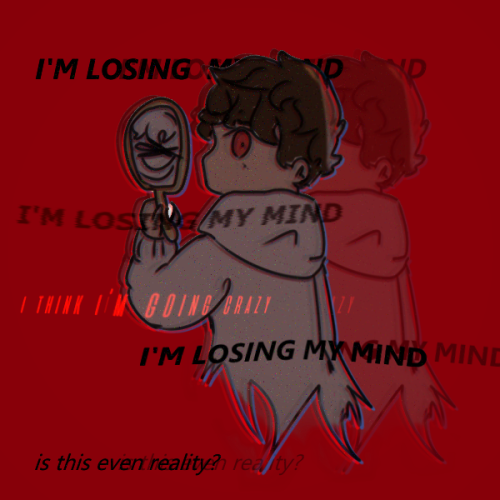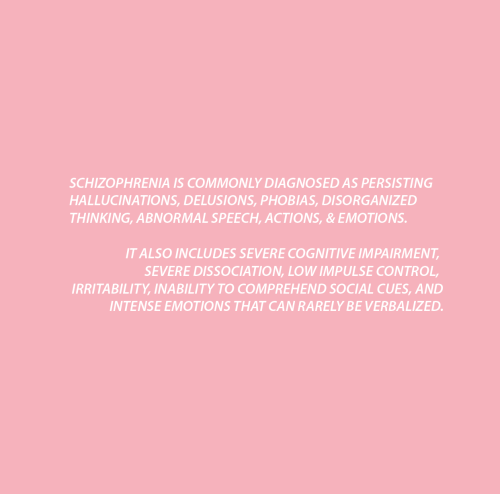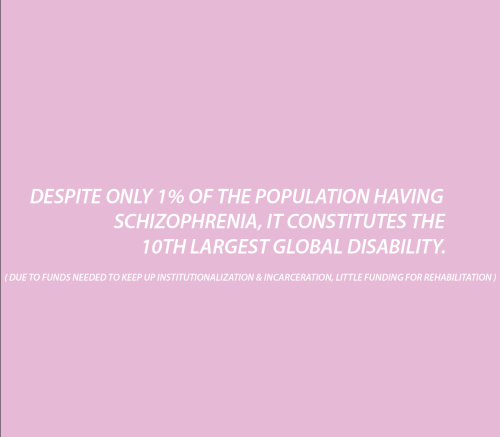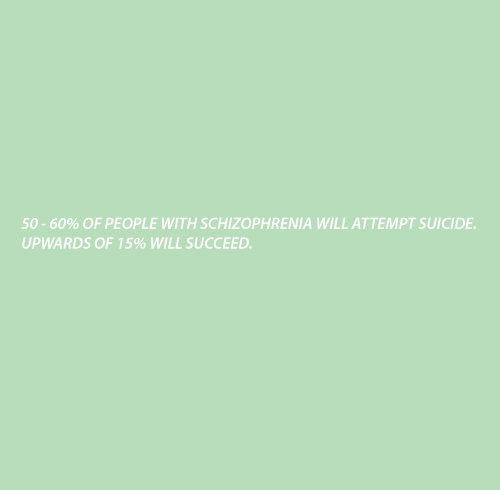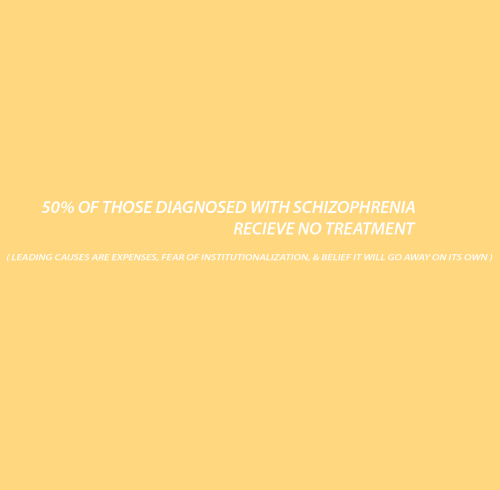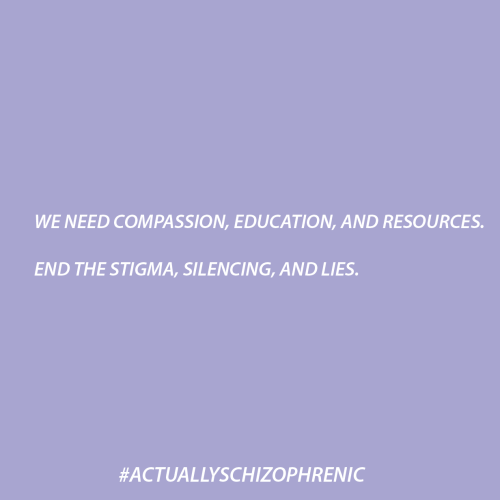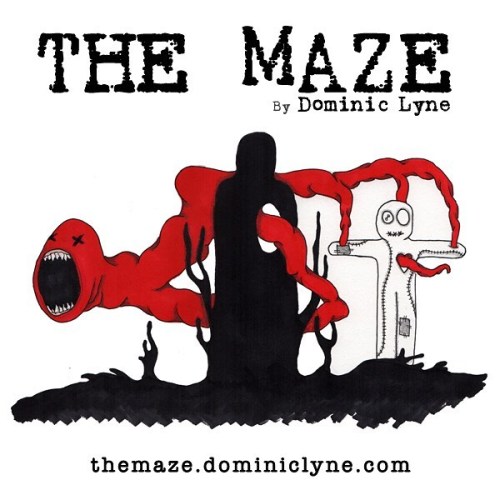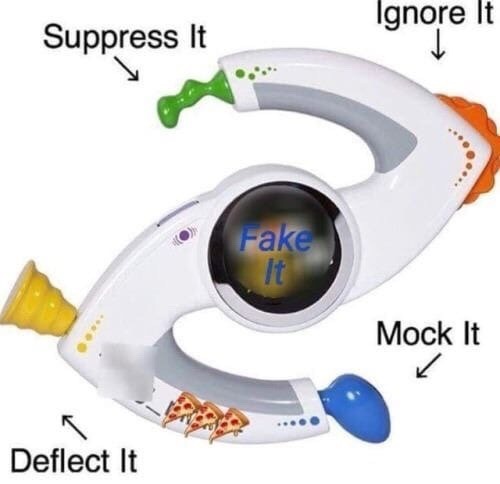#psychosis
Researchers from King’s College London and the University of Nottingham have identified neuroimaging markers in the brain which could help predict whether people with psychosis respond to antipsychotic medications or not.
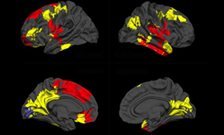
In approximately half of young people experiencing their first episode of a psychosis (FEP), the symptoms do not improve considerably with the initial medication prescribed, increasing the risk of subsequent episodes and worse outcome. Identifying individuals at greatest risk of not responding to existing medications could help in the search for improved medications, and may eventually help clinicians personalize treatment plans.
In a study published today in JAMA Psychiatry, researchers used structural Magnetic Resonance Imaging (MRI) to scan the brains of 126 individuals – 80 presenting with FEP, and 46 healthy controls. Participants had an MRI scan shortly after their FEP, and another assessment 12 weeks later, to establish whether symptoms had improved following the first treatment with antipsychotic medications.
The researchers examined a particular feature of the brain called “cortical gyrification” - the extent of folding of the cerebral cortex and a marker of how it has developed. They found that the individuals who did not respond to treatment already had a significant reduction in gyrification across multiple brain regions, compared to patients who did respond and to individuals without psychosis. This reduced gyrification was particularly present in brain areas considered important in psychosis, such as the temporal and frontal lobes. Those who responded to treatment were virtually indistinguishable from the healthy controls.
The researchers also investigated whether the differences could be explained by the type of diagnosis of psychosis (eg. with or without affective symptoms, such as depression or elated mood). They found that reduced gyrification predicted non-response to treatment independently of the diagnosis.
Dr Paola Dazzan from the Department of Psychosis Studies at King’s College London’s Institute of Psychiatry, and senior author of the paper, says: “Our study provides crucial evidence of a neuroimaging marker that, if validated, could be used early in psychosis to help identify those people less likely to respond to medications. It is possible that the alterations we observed are due to differences in the way the brain has developed early on in people who do not respond to medication compared to those who do.”
She continues:”There have been few advances in developing novel anti-psychotic drugs over the past 50 years and we still face the same problems with a sub-group of people who do not respond to the drugs we currently use. We could envisage using a marker like this one to identify people who are least likely to respond to existing medications and focus our efforts on developing new medication specifically adapted to this group. In the longer term, if we were able to identify poor responders at the outset, we may be able to formulate personalized treatment plans for that individual patient.”
Dr Lena Palaniyappan from the University of Nottingham adds: “All of us have complex and varying patterns of folding in our brains. For the first time we are showing that the measurement of these variations could potentially guide us in treating psychosis. It is possible that people with specific patterns of brain structure respond better to treatments other than antipsychotics that are currently in use. Clearly, the time is ripe for us to focus on utilising neuroimaging to guide treatment decisions.”
Psychosis is a term used to indicate mental health disorders that present with symptoms like hallucinations (such as hearing voices) or delusions (unshakeable beliefs based on the person’s altered perception of reality, which may not correspond to the way others see the world). Psychotic episodes are present in conditions such as schizophrenia and bipolar disorder.
Approximately 1 in 100 people in England have at least one episode of psychosis throughout their lives. In most cases, psychosis develops during late adolescence (15 or above) or adulthood. Treatment involves a combination of antipsychotic medication, psychological therapies and social support. Many people with psychosis go on to lead ordinary lives and for about 60% of people, the symptoms disappear within 12 months from onset. However, for others, treatment is less straightforward and many do not respond to the initial antipsychotic treatment prescribed by their doctor. Early response to antipsychotic medication is known to be associated with better outcome and fewer subsequent episodes, and intervening early with effective treatments is therefore important.
Not sure if I should get rid of the title “Goodbye Dante”. I mean it’s not like he’s completely dormant anymore but he’s not fully present either. I think I’ll wait just to make sure he isn’t just a symptom of psychosis. Since he’s been back I’ve been hallucinating just a little so… We’ll see.
Really showing some self restraint here, I feel. Going back and fourth back and fourth. Should We? Shouldn’t We? We want to try to clear up psychosis and also not make it worse. We are taking the smallest dose of lsd We think We’ve taken since We started Psychedelic Therapy. About 100mcg. Teen wanted to do 200mcg but Brother actually talked him out of it. He said just to do a little for medicine. Basically that’s what he was saying. But yeah, today We walked to the store by ourself (bad idea) everything went relatively fine but when We got home and went to unlock our door We got freaked out. We swore someone had come up the stairs behind us but there was no one. Then it felt like they kept sneaking up behind us. There wasn’t anyone there. We will see if this dose makes a difference.
The shadows stopped moving.
Really showing some self restraint here, I feel. Going back and fourth back and fourth. Should We? Shouldn’t We? We want to try to clear up psychosis and also not make it worse. We are taking the smallest dose of lsd We think We’ve taken since We started Psychedelic Therapy. About 100mcg. Teen wanted to do 200mcg but Brother actually talked him out of it. He said just to do a little for medicine. Basically that’s what he was saying. But yeah, today We walked to the store by ourself (bad idea) everything went relatively fine but when We got home and went to unlock our door We got freaked out. We swore someone had come up the stairs behind us but there was no one. Then it felt like they kept sneaking up behind us. There wasn’t anyone there. We will see if this dose makes a difference.
Been losing so much time. Thursday was a continuation of Wednesday. It was Wednesday until it was Friday. There was no Thursday. But it was Wednesday that didn’t start until Thursday. The Thursday that never happened. We probably shouldn’t have Ativan anymore. I forget that We used to black out from Ativan and alcohol. Maybe We are more sensitive in our current condition. We had the outsider hold on to our Ativan for us. Because We knew that We couldn’t trust ourself in the state We’ve been in. Yesterday We asked him for our medicine. He said He gave it to us and that We said that We didn’t need him to hold on to it anymore because We wouldn’t need it anymore…???!!! It wasn’t Teen. It wasn’t Animal. It wasn’t Malice and it sure as fuck wasn’t The Gobos! So who was it? We suffered full amnesia! This isn’t our norm or at least it hasn’t been in a long time. And We’ve been hallucinating. Full, head on hallucinations. That is also not our norm. Not since We were a child. Visual, auditory and tactile hallucinations. We look at our “Trip Check Painting” and the shadows move like We’re on LSD. But We haven’t taken LSD in about a week. We don’t know what this means. But it seems like when We push and stress for an entire semester, by the end of it, something happens to our mental state. We pushed ourself hard, not even this hard but hard enough to cause a state of psychosis in 2019. The last day of class or the very next day, don’t clearly remember, Teen tried to kill the vessel. It was a very serious attempt. And he very nearly succeeded. Was almost rushed to another hospital for a liver transplant but our levels suddenly started coming down. Waking up in the hospital… Never hallucinated that bad in our entire life. A dark shaking figure stood in the corner of our “room”. The walls had weird writing all over them and were moving. Everything had a yellow tint to it.
We are not suicidal. But We are not okay. We do not believe that We are a risk to ourself or anyone else. Other than a possible accidental overdose! That Ativan shit is scary! If We try really hard, We can see someone dropping one of the pills in the trash accidentally then popped the last… 3??? In our mouth. If there were more in there We don’t know if, whoever that was, would have taken all of it.
We did well in Music Theory 101. We did not great at all on our project but ended up getting a 90 on it! Our average was an 89 but when We checked, our overall grade is a 99 point… Something. Can’t really remember but a fucking 99??!! How? Since March We’ve been doing horribly! When We submitted our final project We also wrote a little over 300 words vaguely explaining why We submitted such hot garbage. He wrote back telling me that he thought We were doing well and that he could tell how much work We put in all of our work. After our presentation he clapped…??? We thought he was gonna be like, “Wtf is this?” Even though he did let us know where We fucked up he still seemed to understand that We did know the material We were just having a bad time. None of us saw that coming.
So why are We starting to spiral? Is this just what a burnout feels like for us now? Is there something seriously wrong? We don’t know yet. Hopefully this fades with some rest.
fyi to yall in quarantine whos grasp on reality is getting a little slippery: isolation, intense boredom, stress and lack of positive routine are absolutely contributing factors to exacerbating psychosis and psychosis-adjacent disorders, even latent ones. im not saying this to fearmonger im saying it so u can recognise it and take steps to handle it especially if it induces your first ever episode.
some warning signs can include
- starting to believe unusual things that you previously did not believe (e.g. living in a simulation / you or others around you not being real / secretly being in hell or dead / otherworldly beings communicating with you somehow / government conspiracies / everyone around you is out to get you and harboring ill intent)
- seeing things youre pretty sure arent there (e.g. shadow people, floating lights, stationary objects moving on their own, animals in a house that doesnt have pets)
- hearing things (e.g. murmured voices, occasional clear and loud voices, faint music, scratching sounds, any without a source)
- feeling a sense of dread or generalised paranoia, a sense that you are being watched or that something terrible is looming on the horizon but you dont know what
- having extra trouble putting your thoughts in order and speaking coherently, cannot concentrate, space out to the point of feeling slightly catatonic
those most at risk are anyone with a family history of this vein of mental illness as well as those using certain drugs to get through the tedium of quarantine - if this is you, its best to research whether the substances youre using have documented links to triggering episodes of psychosis in users. weed is included in this, not just psychoactive drugs.
here are some steps you can take to get a handle on the situation if your grasp on reality is slipping like this and you cant access irl mental health resources.
- have a routine. this is vitally important - you need structure. set an alarm for a specific time every day, even though you have nowhere to be. give yourself a bedtime. eat 2 meals a day, at least, at regular times.
- leave the house. no, i dont mean Go Out, just be outside for a while every day or two. go for a walk if you can. stand outside your house for 15 minutes paying attention to the cars and the birds and the breeze and the clouds if you cant. really observe your surroundings. get sunlight.
- on that note - let as much natural light into your house as possible during waking hours. your circadian rhythm needs it.
- take up some form of hobby that requires physical engagement - whether thats journaling, drawing, making origami, gardening, cooking. the point of this is to ground yourself in your body and the world around you, have an affect on your surroundings, and stimulate your brain.
- dont dwell on your delusions, hallucinations or distressing trains of thought if you can help it. that isnt to say “snap out of it and just dont have symptoms”, but rather accept them without either judging them or overindulging in them. observe them as they happen, accept that they happen, and let it go, if you can. you may not be able to control the experiences, but you can control how you react to them, and the best case scenario is not allowing them to overwhelm your thoughts and your days. this is much easier said than done, especially if the experiences are distressing in nature, but the aim is to sever the feedback loop that causes further stress and thus further bad extrasensory experiences.
this is honestly just a basic surface scratch of advice though bc im by no means an expert, just someone w latent psychosis who used to work in the field for a while. there are tons of resources online by others who have experienced psychosis that can be a huge help if u think you might be at risk due to the stress, boredom and uncertainty of quarantine
Good, actionable advice. My own issues are in the depression and anxiety side of things, but this is also something to watch out for.
Yes yes yes to all of this.
Also – pro tip if you think you’re having visual or auditory hallucinations: use your phone to record what you’re seeing/hearing. Then you can review the playback yourself, or send it to a friend who can tell you “Nope, nothing there, you’re good.”
Great, useful info. Check our Psychosis tag for more on the topic, including more about that last camera trick.
i have never met an unpsychotic person who knows what it actually means to “not encourage the delusion” …not a single one
what “don’t encourage the delusion” means:
- don’t argue with or challenge the delusion—attempting to disprove someone’s delusions is not helpful at all and will result in that person not trusting you
- assure the delusional person that they are safe; be open and honest at all times
- encourage them to verbalize their feelings and offer protection to prevent injury to themselves or, possibly, others
- start building a trusting relationship with them rather than acting on a desire to control their symptoms
- do not confirm or feed into the delusion by asking questions about it when the person is not experiencing a psychotic episode
what it does not mean:
- insisting to a psychotic person experiencing psychosis that what they’re experiencing isn’t real
fyi to yall in quarantine whos grasp on reality is getting a little slippery: isolation, intense boredom, stress and lack of positive routine are absolutely contributing factors to exacerbating psychosis and psychosis-adjacent disorders, even latent ones. im not saying this to fearmonger im saying it so u can recognise it and take steps to handle it especially if it induces your first ever episode.
some warning signs can include
- starting to believe unusual things that you previously did not believe (e.g. living in a simulation / you or others around you not being real / secretly being in hell or dead / otherworldly beings communicating with you somehow / government conspiracies / everyone around you is out to get you and harboring ill intent)
- seeing things youre pretty sure arent there (e.g. shadow people, floating lights, stationary objects moving on their own, animals in a house that doesnt have pets)
- hearing things (e.g. murmured voices, occasional clear and loud voices, faint music, scratching sounds, any without a source)
- feeling a sense of dread or generalised paranoia, a sense that you are being watched or that something terrible is looming on the horizon but you dont know what
- having extra trouble putting your thoughts in order and speaking coherently, cannot concentrate, space out to the point of feeling slightly catatonic
those most at risk are anyone with a family history of this vein of mental illness as well as those using certain drugs to get through the tedium of quarantine - if this is you, its best to research whether the substances youre using have documented links to triggering episodes of psychosis in users. weed is included in this, not just psychoactive drugs.
here are some steps you can take to get a handle on the situation if your grasp on reality is slipping like this and you cant access irl mental health resources.
- have a routine. this is vitally important - you need structure. set an alarm for a specific time every day, even though you have nowhere to be. give yourself a bedtime. eat 2 meals a day, at least, at regular times.
- leave the house. no, i dont mean Go Out, just be outside for a while every day or two. go for a walk if you can. stand outside your house for 15 minutes paying attention to the cars and the birds and the breeze and the clouds if you cant. really observe your surroundings. get sunlight.
- on that note - let as much natural light into your house as possible during waking hours. your circadian rhythm needs it.
- take up some form of hobby that requires physical engagement - whether thats journaling, drawing, making origami, gardening, cooking. the point of this is to ground yourself in your body and the world around you, have an affect on your surroundings, and stimulate your brain.
- dont dwell on your delusions, hallucinations or distressing trains of thought if you can help it. that isnt to say “snap out of it and just dont have symptoms”, but rather accept them without either judging them or overindulging in them. observe them as they happen, accept that they happen, and let it go, if you can. you may not be able to control the experiences, but you can control how you react to them, and the best case scenario is not allowing them to overwhelm your thoughts and your days. this is much easier said than done, especially if the experiences are distressing in nature, but the aim is to sever the feedback loop that causes further stress and thus further bad extrasensory experiences.
this is honestly just a basic surface scratch of advice though bc im by no means an expert, just someone w latent psychosis who used to work in the field for a while. there are tons of resources online by others who have experienced psychosis that can be a huge help if u think you might be at risk due to the stress, boredom and uncertainty of quarantine
An interest in Gothic shit is a sign of creativity, sensitivity and intelligence, not mental illness and I know people can ruffle at that stereotype. Still, there is a notable overlap between gothy people and people dealing with mental illness(es) and this is so well-written and helpful.
Me: *hears something weird*
Me: omg Did you hear that??
Person in room: Hear what?
Me: *remembers I hallucinate*
Me:…
Me: Never mind

[every cut becomes an eye]

[no one told you goodhood was so lonely]
Assorted recommendations!
I haven’t thoroughly reviewed all of these myself yet but they were recommended by friends and I’m putting them here for both my future reference and just to share.
Video Essayists!
DnD Talk!
A great article!
Who Gave You the Right to Tell That Story?
This one is not directly on the topic of writing, but if you’re working with a character with psychosis this will be very informative!
I try to find something to smile about everyday, and not everyday has to be incredibly productive. My mental health is my first priority and always will be regardless of the situation. I now know my limits and boundaries, and what makes me feel safe and comfortable. When it comes down to it, I’m the only one who can keep me on track with my recovery once I’m at home. It’s been 8 years since I first started this journey and only a few years since my lowest point. I don’t plan on stopping now
A take on my buddy who said to me tonight..
“I feel like everyone is looking at me”
D U C K S E A S O N a s t o r y
But yeah in all honesty, if you keep pushing the limit and go on using and staying up after you’re feeling that way and can’t shake it, there are about 4-5 more levels of that exact situation except with visual and auditory hallucinations that are almost impossible to tell from reality unless you’ve been doing this for years and years… Even then , seasoned heads know to put it down and rest and recoup because those are the badlands. These times are when shit gets crucial and I’ve had many near death experiences trying to navigate through that psychosis and it is not fun at all. Once in my younger years , 2nd time being up for about 12 days… Using hard every day, mixing drugs also.. I woke up , driving , on the wrong side of the highway.. the next time I woke up I was on the interstate slamming into the left side lane median. Every car on the road I seen was police and it was a nightmare that barely ended. I slept for a week and didn’t return to the badlands for years. That being on accident. Once you experience this kinda shit you’ll be able to laugh off the people looking at you shit. Which you will learn thru and thru how to confidently know for sure when someone is looking at you and when they’re not. By the time you have it down, they won’t be looking due to thinking you’re on meth , cause your tolerance will give way to that being your normal state. If you enter the badlands you must be aware that almost anyone who knows you well will be able to see something isn’t quite right. Also, pay attention to your closest, longest relationships that you have had that were a part of your life before you used meth at all. These are the red herrings and also you will be more likely to share or divulge excess information that not all or them will be equipped to handle or accommodating towards. My highest opinion (pun intended), is to feel the person you’re interacting with out on shit… If they’re not openly doing the same thing and amount you are.. I’d advise you to keep it under the rug. I am a successful early middle age person in an industry and one of my biggest regrets is letting certain people in on things in my life that I shouldn’t have, and not having many secrets.. it has made things and conversations very difficult that would otherwise not be. It has given ammunition to any slight possibility of failure inexperience for a great time to interject about my lifestyle choices. I lost some friends over my explanation of something that wouldn’t even be known to this day if I would not have made them aware to it….
Being a drug addict is a part time job that only pays the sickest part of your brain. But it’s me. I can’t stand the real world. It’s a lonely existence even if you’re crowded. If you’re early in on meth… One thing I can reinforce to you is that the bad shit that you have already experienced, and twisted into a justify able version of events for yourself.. Those things only get worse. They can pile up to you taking a look around and everything that leads up to your current standing may be drugs. All of this won’t apply to everyone.. but in my early opinion there really is no such thing as complete 100% self controlled non damaging meth use.
I gotta go somebody is looking at me. Lol…… Be well.
Have you ever met someone with schizophrenia or a schizophrenia spectrum disorder? Have you ever seen a post talking about our struggles and throwing numbers at you in that old fashioned, block o’ text style and think “that’s a lot to process.” Well, have no fears, because here’s your handy dandy aesthetic summary to the mental illness that 1% of the population suffers with. ( All statistics compiled from schizophrenia.org, NIMH, Mayo Clinic, and various other scientific journals )
Post link
psychosis ≠ schizophrenia
psychosis does not equal schizophrenia
psychosis ≠ schizophrenia
psychosis does not equal schizophrenia
Not only is it Mspec Lesbian Week— it’s also Psychosis and Schizophrenia Awareness Week.
A special shoutout to Psychotic Mspec Lesbians



[id: a set of three nearly identical images of a pink hand holding a pink heart, over a pastel purple-to-pink gradient background. they are drawn in a simple, slightly pixellated style. each one has pixellated pink text that reads, “psychotic people deserve love,” “psychotic people deserve comfort,” and “psychotic people deserve safety,” in that order. end id.]
made these because i felt down, this cheered me up <3 i am not very good with words but i hope these might cheer up some other psychotic people too ^^

Google search history called me out today









‘The James Bond Movie that never was’
The latest A Broken Coda vlog is now available to watch on my YouTube channel. . In this video I talk about my last appointment with a psychiatrist and my frustrations with it being another locum. . YouTube: youtube.com/c/domlyne
Post link
The Maze is an interactive multimedia introduction to my work about my mental health difficulties.
Presented in a non-linear, maze-like fashion, The Maze also features previously unpublished written material.
You can enter The Mazeat:themaze.dominiclyne.com
Post link
Figurine interpretation of the Shadow-man and I.
I have seen the Shadow-man since I was 4. For 31 years it has followed me, directed my life path, and made sure I have always done what the darkness wanted.
Post link
yall ever have those days when ur brain is like
hm… things have been 2 quiet lately…. 2 easy….. time 2 kick this up a difficulty level & go roguegobananasgob u c k w i l d
Warum können wir nicht einfach alle Roboter sein? Dann würde es die ganzen Gefühle und Emotionen gar nicht geben.
My book is about my experiences with psychosis and all the bullshit I’ve dealt with because of it. It’s also about just learning to heal. I think my story is an important one, for myself and others. Please reblog this link if you can. There is a $15 dollar ebook option for those who prefer ebooks or don’t have much money. You are also able to just contribute a few dollars if that’s all you can do. Support from the wonderful mental health community on tumblr, the one that I’ve been part of for so long, would mean the absolute world to me!
It will also include some of my art, some of which has been reblogged on here countless times.
https://www.indiegogo.com/projects/asking-for-empathy?create_edit=true#/

